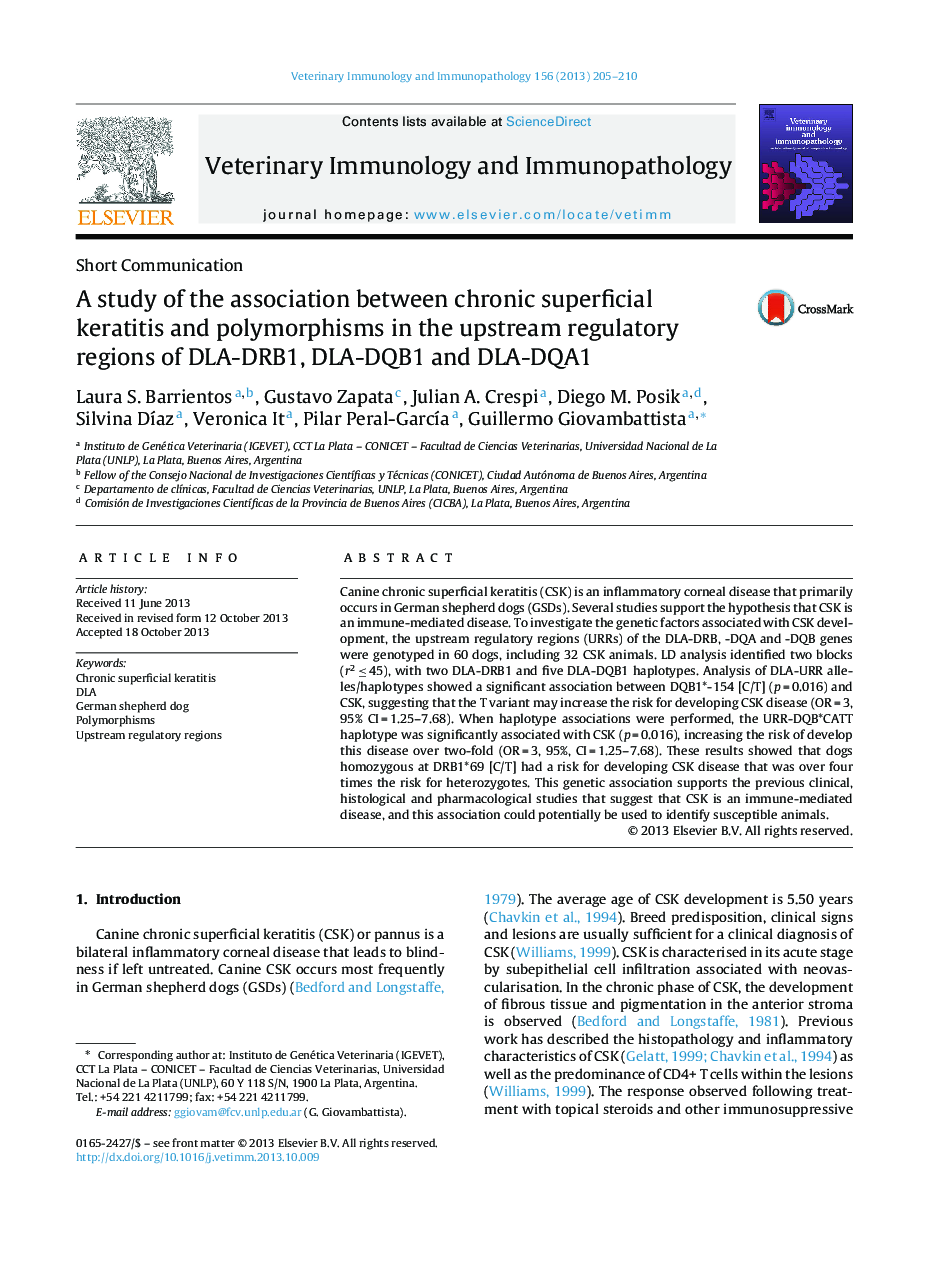| Article ID | Journal | Published Year | Pages | File Type |
|---|---|---|---|---|
| 2461593 | Veterinary Immunology and Immunopathology | 2013 | 6 Pages |
Canine chronic superficial keratitis (CSK) is an inflammatory corneal disease that primarily occurs in German shepherd dogs (GSDs). Several studies support the hypothesis that CSK is an immune-mediated disease. To investigate the genetic factors associated with CSK development, the upstream regulatory regions (URRs) of the DLA-DRB, -DQA and -DQB genes were genotyped in 60 dogs, including 32 CSK animals. LD analysis identified two blocks (r2 ≤ 45), with two DLA-DRB1 and five DLA-DQB1 haplotypes. Analysis of DLA-URR alleles/haplotypes showed a significant association between DQB1*-154 [C/T] (p = 0.016) and CSK, suggesting that the T variant may increase the risk for developing CSK disease (OR = 3, 95% CI = 1.25–7.68). When haplotype associations were performed, the URR-DQB*CATT haplotype was significantly associated with CSK (p = 0.016), increasing the risk of develop this disease over two-fold (OR = 3, 95%, CI = 1.25–7.68). These results showed that dogs homozygous at DRB1*69 [C/T] had a risk for developing CSK disease that was over four times the risk for heterozygotes. This genetic association supports the previous clinical, histological and pharmacological studies that suggest that CSK is an immune-mediated disease, and this association could potentially be used to identify susceptible animals.
